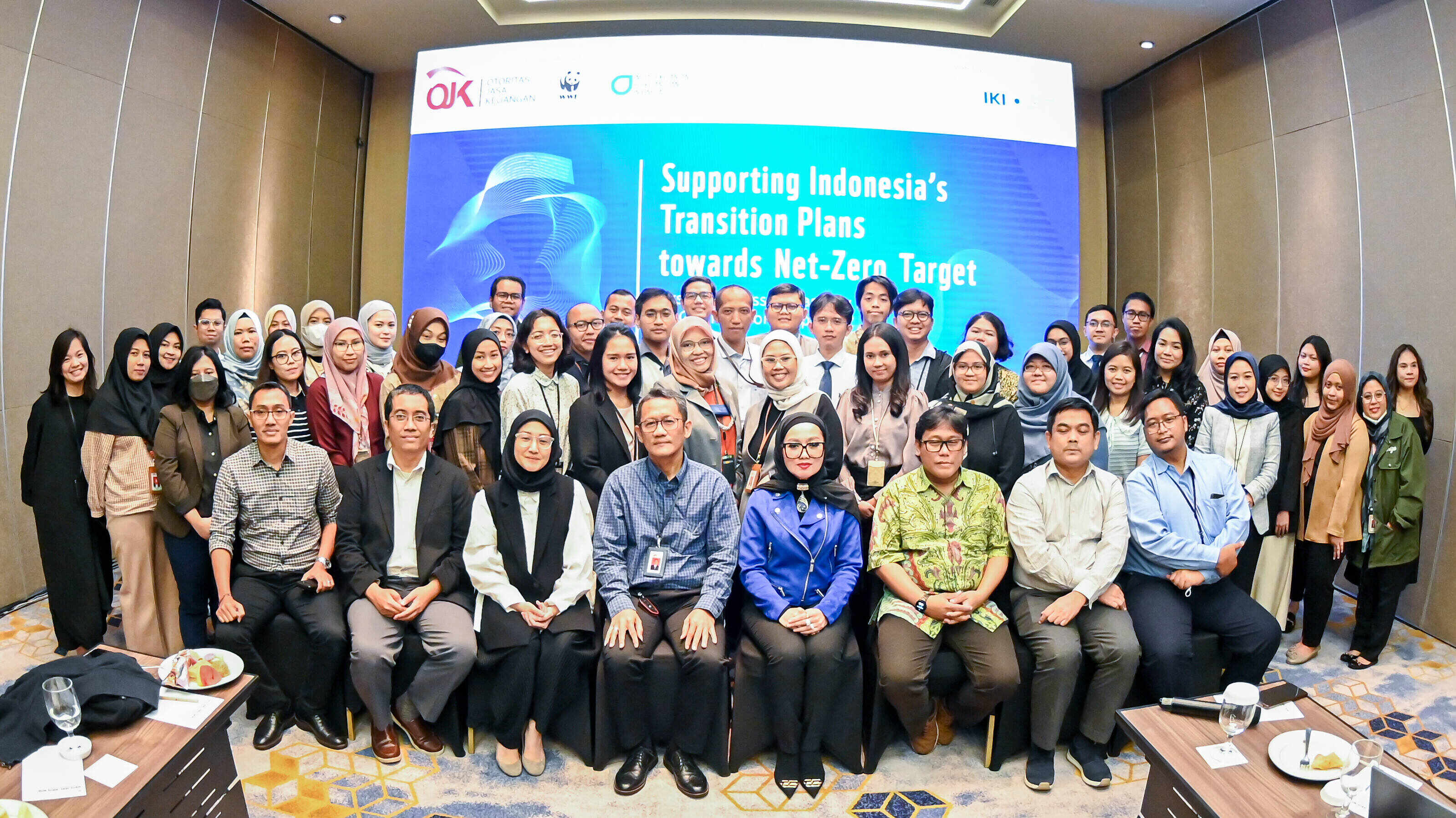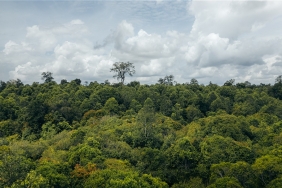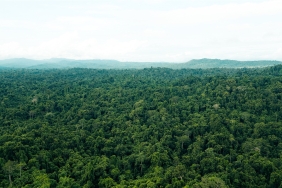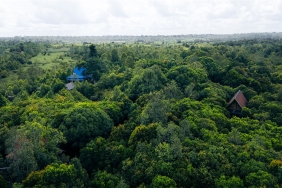OJK AND WWF-INDONESIA ENHANCE GHG PRICIPLES KNOWHOW FOR DOMESTIC BANKS
Over 100 banks participated in the first round of capacity-building and technical assistance
The world is experiencing the devastating effects of global warming. Rising sea levels, long droughts, and frequent crop failures are telltale signs of a bleak future should we fail in our quest to stem the rising temperature.
Ensuring the global temperature does not rise more than 1.5℃ is of utmost importance. Achieving climate goals does not hinge on governments, development agencies, or civil society organizations, but requires active contributions from all stakeholders.
"Failure to swiftly reduce emissions and meet Paris Agreement targets, including net zero, risks global temperatures exceeding the 1.5°C threshold. The latest UN Environment Programme report warns we're still heading for a 1.8°C increase or higher if we don't align ambitions and actions with the Agreement," says Dewi Rizki, Chief Conservation Officer (CCO), WWF-Indonesia.
Now is the time to walk the talk and deliver concrete actions to curb global warming. The financial industry, the crucial cog that keeps the wheels of the global economy turning, also needs to up the ante.
Indonesia’s Financial Services Authority (OJK) in collaboration with WWF-Indonesia initiated a series of capacity buildings and technical assistance to help support banks in their journey to achieving net zero emission. Under a program called ‘Supporting Indonesia’s Transition Plan Towards Net-Zero Target’, OJK and WWF-Indonesia sought to address, among others, climate stress tests and greenhouse gas emissions accounting for banks.
“The program is designed to complement the Climate Risk Management and Scenario Analysis (CRMS) guidelines issued in March. Through a series of capacity building, it is expected to enable banks to navigate their following actions of the climate stress tests and scenario analysis that the banks will have to carry out,” Uli Agustina, OJK Director, explained.
The first round of the program, held from February 28th to March 1st, was delivered to 228 representatives from 105 domestic banks on the fundamentals of Greenhouse Gas (GHG) Emissions Accounting for Scopes 1 and 2.
“Banks’ ability to measure their emission baseline is instrumental in building their strategy to better manage climate risks, seizing business opportunities, and future-proofing their operations," added Rizkia Sari Yudawinata, Sustainable Finance Lead, WWF-Indonesia.
Key takeaways from the program are as follows:
- Several major banks have already embarked on GHG accounting, with some focusing on their operational emissions and a few extending their efforts to include financed emissions before participating in the capacity-building program. The importance of knowledge alignment between regulators and financial institutions was underscored during discussions.
- Bank officers gained valuable insights into GHG accounting practices, particularly in identifying emission boundaries and calculating emissions within those boundaries.
- Despite progress, there was a notable subset of banks that remained unaware of the urgency surrounding GHG reporting.
In the near future, OJK along with WWF-Indonesia plans on holding more rounds of capacity buildings to support the Indonesian banking sector to transition towards net zero and help spur concerted efforts in meeting the country’s climate goals.





